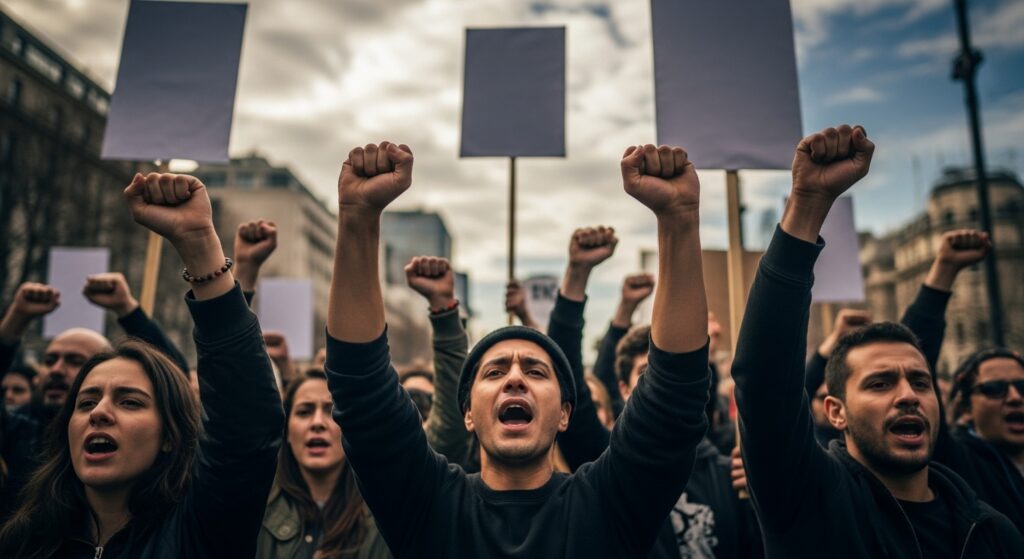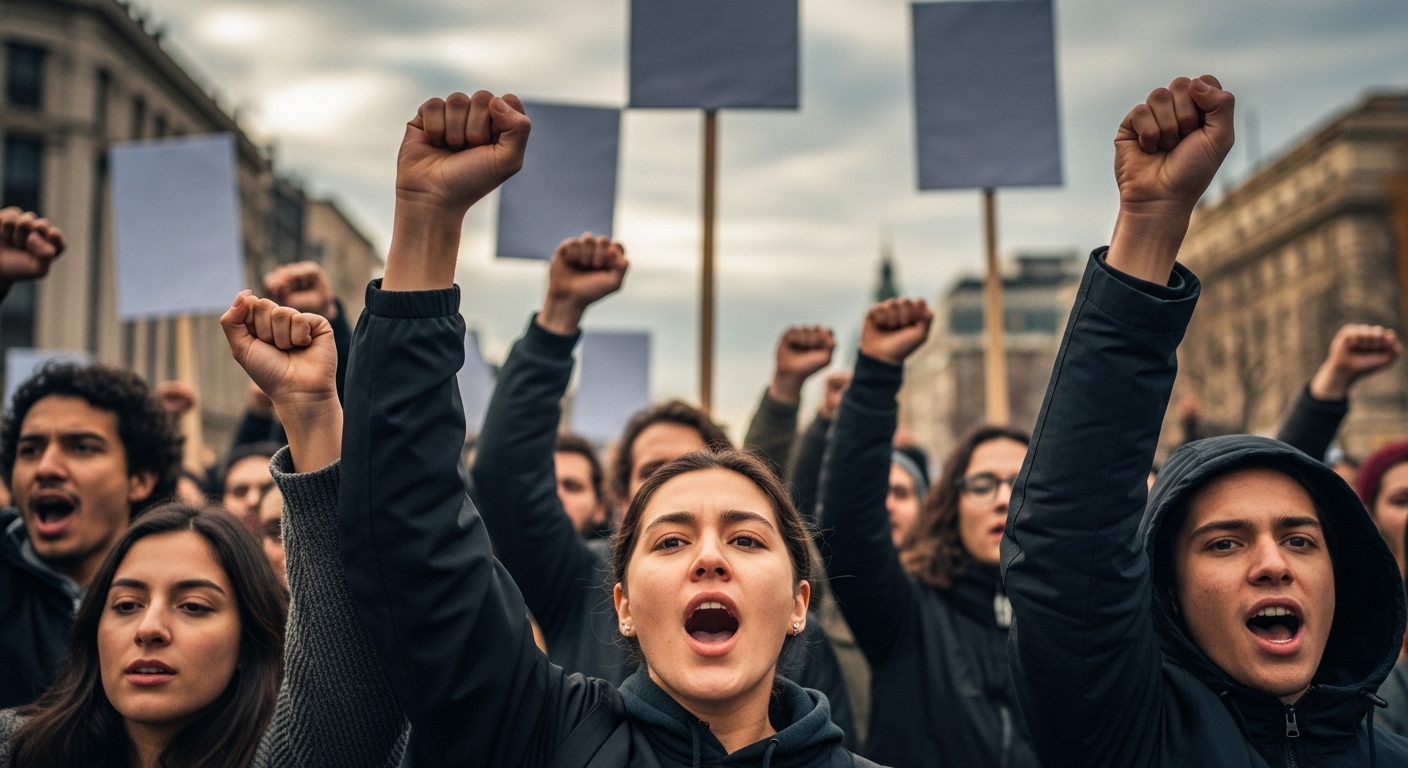
For many, the phrase “No Kings” resonates as a powerful anti-authoritarian sentiment, often seen on protest signs across the United States. Yet, beneath the compelling slogan lies a complex No Kings Movement Philosophy—a set of principles, specific grievances, and ambitious goals for societal change. If you’ve been seeing “No Kings protest near me” inquiries and wondering about the deeper meaning, this article will deconstruct the ideology, helping you understand not just what the movement opposes, but why and what it envisions for a more equitable future. Understanding this philosophy is crucial for anyone seeking to engage meaningfully, whether by finding local protests or simply staying informed about significant social movements.
Introduction: Beyond the Slogan
The “No Kings” slogan is more than just a catchy phrase; it’s a declaration against unchecked power and arbitrary rule, both historical and contemporary. It represents a fundamental rejection of any system or individual that operates above the consent of the governed or outside the bounds of accountability. While its public visibility may often align with protests against specific political figures, the underlying No Kings Movement Philosophy extends far beyond simple dissent, advocating for a profound recalibration of power structures. Our analysis shows that a clear understanding of these foundational ideas is essential to grasp the movement’s true scope and purpose.
Origins and Evolution of the ‘No Kings’ Ideology
The roots of the ‘No Kings’ ideology can be traced back to historical struggles against monarchy and tyranny, reflecting a timeless human aspiration for freedom and self-governance. In its modern incarnation, particularly in the United States, the phrase gained renewed prominence in the mid-2010s, initially as a potent symbol against perceived authoritarian tendencies within government. However, as the movement matured, its focus evolved from challenging specific leaders to critiquing broader systemic issues. We’ve observed this shift reflecting a deeper understanding among advocates that “kingship” can manifest in various forms—be it political, corporate, or even ideological—and that true freedom requires dismantling these pervasive structures of unaccountable power.
The Core Philosophy: A Deep Dive into ‘No Kings’ Principles
At its heart, the No Kings Movement Philosophy is built upon several foundational principles that advocate for genuine democracy and citizen sovereignty. We’ve identified these core tenets through extensive observation and analysis of movement literature and statements:
- Rejection of Absolute Power: This is the most direct interpretation. It’s a refusal to accept any individual or entity holding power without checks, balances, and direct accountability to the people they govern. This principle extends beyond literal monarchs to any form of authoritarianism.
- Emphasis on Citizen Sovereignty: The power ultimately resides with the populace. Governments and institutions derive their legitimacy from the consent of the governed and must act in their best interest, not in the interest of a select few.
- Demand for Accountability and Transparency: Every individual and institution in a position of power must be transparent in their actions and held accountable for their decisions, ensuring fairness and preventing corruption.
- Promotion of Equitable Governance: The movement champions systems that distribute power more broadly and ensure that all voices are heard, rather than concentrating influence in the hands of a powerful elite.
This philosophy fundamentally challenges the notion that any individual or institution is inherently superior or entitled to rule, pushing instead for a truly representative and responsible governance model.

Specific Grievances: What ‘No Kings’ Advocates Against
The No Kings Movement Philosophy is not abstract; it’s fueled by concrete grievances that reveal where modern “kingship” is perceived to be failing society. The movement specifically advocates against:
- Systemic Corruption: The entanglement of corporate interests with political power, leading to policies that benefit a wealthy few at the expense of the many. This includes concerns about lobbying, campaign finance, and regulatory capture.
- Erosion of Democratic Norms: Practices such as voter suppression, gerrymandering, and the politicization of judicial systems that undermine the fundamental right to a fair and representative democracy.
- Economic Inequality: The widening gap between the rich and the poor, fueled by policies that favor capital over labor and exacerbate social disparities.
- Environmental Neglect: Policies that prioritize short-term economic gains for powerful industries over the long-term health and sustainability of the planet.
- Authoritarianism and Abuse of Power: Any instance where executive power goes unchecked, civil liberties are curtailed, or government agencies overstep their constitutional bounds. The no kings movement goals often center on reversing these trends.
These grievances underscore the movement’s commitment to challenging not just leaders, but the very mechanisms that allow for such imbalances to persist.
Defining ‘No Kings’: Distinguishing It from General Dissent
It’s important to distinguish the ‘No Kings’ movement from general political dissent. While many forms of protest express dissatisfaction with current leadership or policies, the ‘No Kings’ ideology goes deeper. It’s not merely about replacing one leader with another but about fundamentally redesigning the architecture of power itself. Our research indicates that the movement’s message is less about partisan loyalty and more about systemic integrity. It seeks to dismantle the structures that enable authoritarianism, regardless of who occupies the highest office. This principled stance is what gives the “No Kings protest message” its distinct, enduring character.
The Movement’s Vision for Societal Change
The No Kings Movement Philosophy isn’t solely about opposition; it carries a clear vision for a more just and democratic society. The movement’s long-term no kings movement goals include:
- Restoration of Genuine Checks and Balances: Strengthening legislative and judicial branches to truly hold executive power accountable.
- Empowered Citizen Participation: Advocating for reforms that enhance direct democracy, increase voter accessibility, and ensure that citizen voices genuinely influence policy.
- Equitable Distribution of Power and Resources: Working towards economic and social policies that reduce inequality and provide opportunities for all, rather than concentrating wealth and influence.
- Responsible Governance: Promoting leaders and systems that prioritize the well-being of the populace and the planet over private gain or ideological dogma.
Achieving this vision requires ongoing advocacy, community organizing, and informed participation. To learn more about participating and finding events, consult our guide: The No Kings Movement: Understanding, Finding & Participating in Protests.
Conclusion: Understanding the ‘No Kings’ Imperative
Deconstructing the ‘No Kings’ movement reveals a sophisticated ideology driven by a deep commitment to democratic principles, accountability, and citizen sovereignty. Far from being a fleeting slogan, its No Kings Movement Philosophy offers a critical lens through which to examine current power structures and advocate for systemic change. By understanding its origins, core tenets, and specific grievances, individuals can engage with the movement more effectively and contribute to a truly representative future. For those ready to join or curious about how to participate safely and effectively, we recommend reviewing our First-Time Protestor Guide: Safety, Rights, and Effective Participation.
Empowering yourself with this knowledge is the first step toward informed action, whether you’re looking for a “no kings protest near me” or simply seeking a deeper understanding of this impactful social force.
